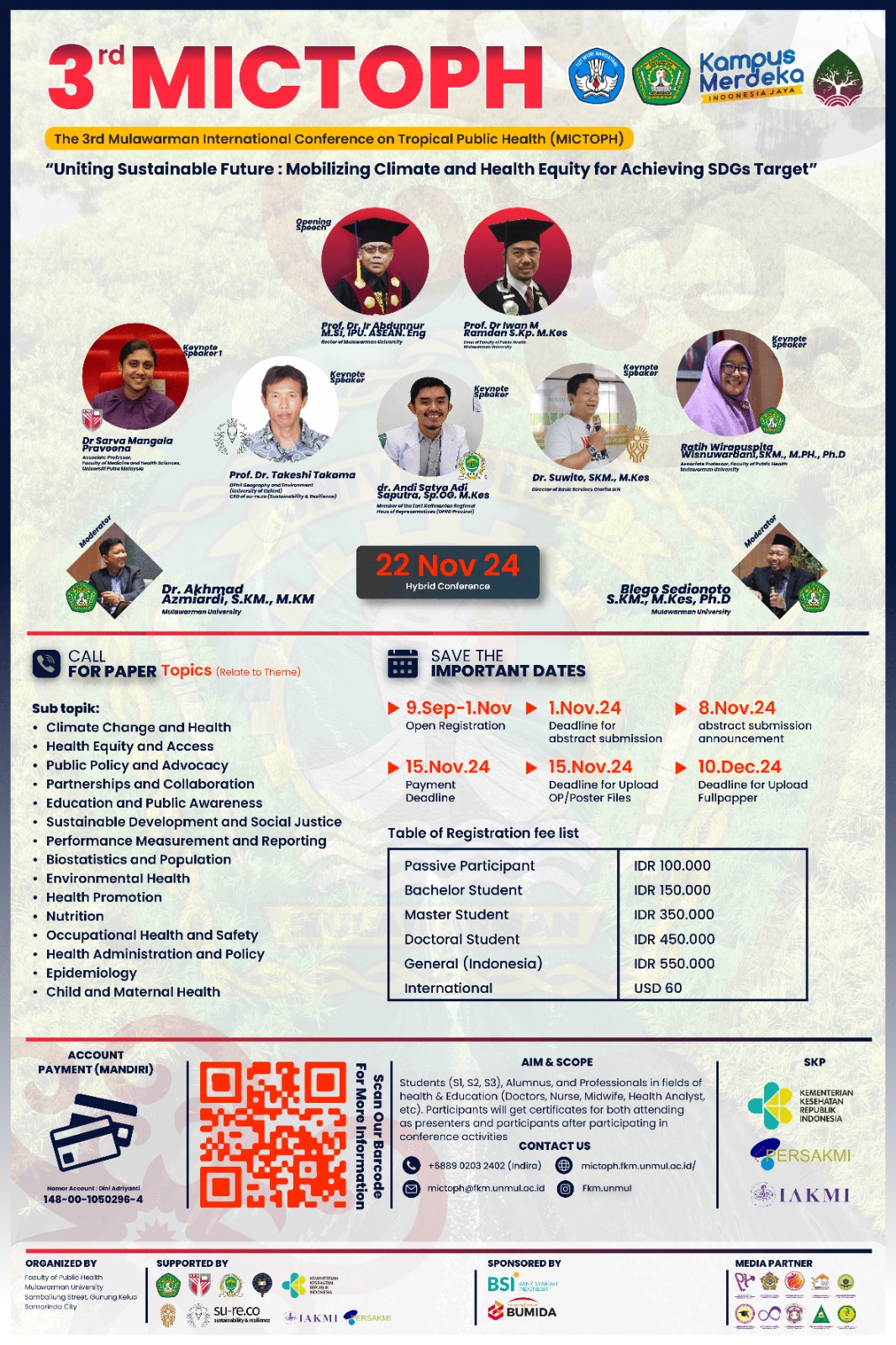Improving Adolescents' Reproductive Health Knowledge At SMP Negeri 20 Penajam Paser Utara
Keywords:
Reproductive health, Health Education, Reproductive KnowledgeAbstract
Background : Adolescents are in a complex developmental phase, but limited reproductive knowledge can hinder their understanding of maintaining reproductive health. Questionnaire data indicate that although 79.2% of adolescents understand the risk of pregnancy after a single sexual encounter, only 15.7% are aware of condoms as a contraceptive method. The primary source of information is parents, but typically only covers topics like menstruation, wet dreams, and dating. Furthermore, 34% of adolescents express the need for further counseling, indicating a demand for more comprehensive information. Objective : This program aims to enhance adolescents' knowledge of reproductive health through counseling, covering topics such as puberty, reproductive organ care, understanding adolescent sexuality, risky sexual behavior, and reproductive health issues. Research Methods/ Implementation Methods : This community service program employed a counseling method through lectures using PowerPoint presentations. The material included adolescent reproductive health education related to early and delayed puberty, reproductive organ care, understanding adolescent sexuality, risky sexual behaviors, and reproductive health issues in adolescents. Pre-test and post-test assessments were conducted to measure changes in participants' knowledge. The counseling session was attended by 25 students from SMP Negeri 20 Penajam Paser Utara, Wonosari Village, Sepaku, Penajam Paser Utara, East Kalimantan. Results : The analysis showed an 88% increase in students' knowledge after the counseling program (p<0.001), indicating that the counseling successfully enhanced students' understanding of reproductive health. Conclusion/Lesson Learned : This program successfully contributed to adolescent health promotion by providing a better understanding of reproductive health. It is expected that government agencies and schools can strengthen reproductive health education for adolescents through counseling and curriculum integration and collaborate with health centers to provide continuous education.





